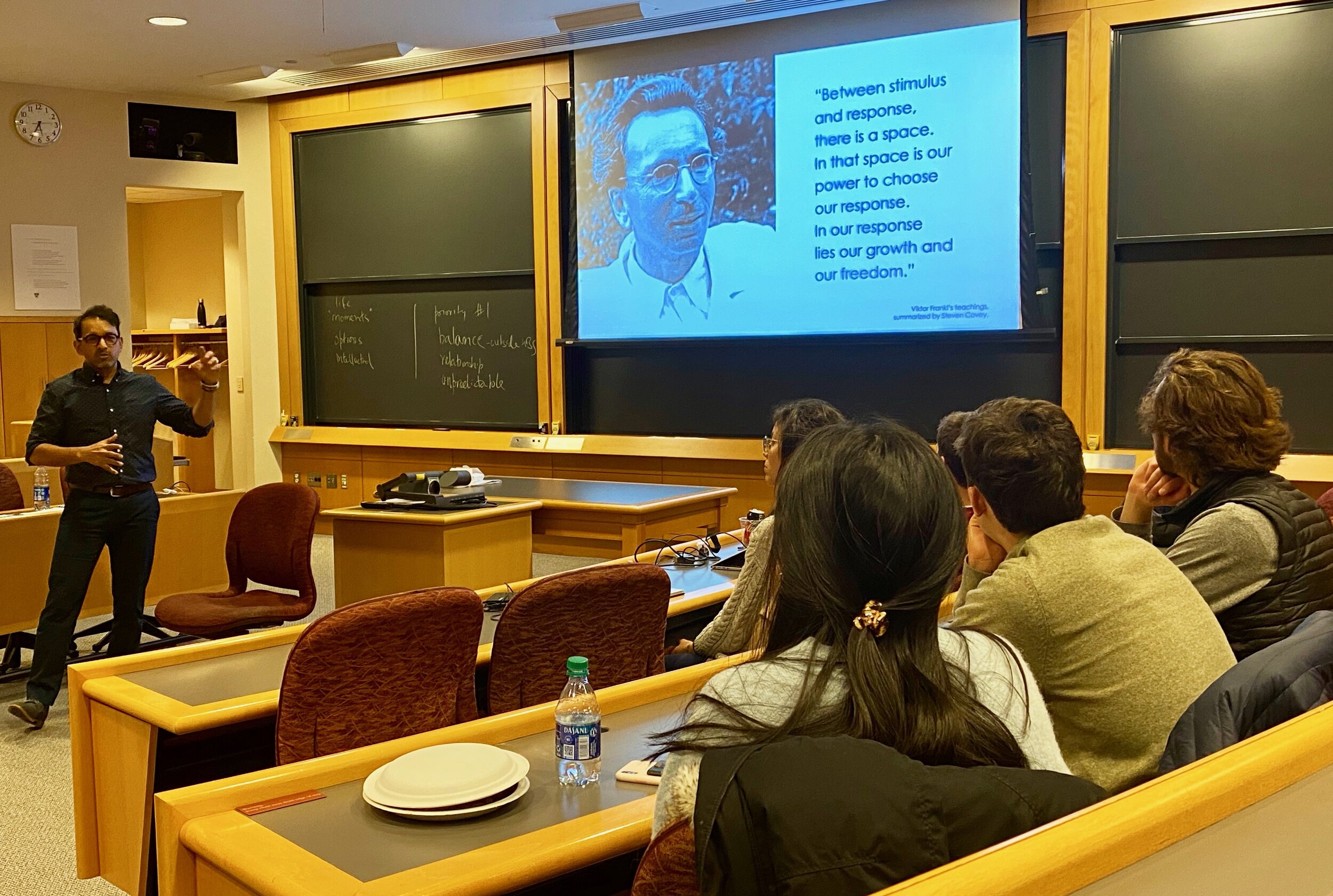Can a mindfulness program strengthen leaders—and leadership skills—across an organization?
Absolutely. That’s exactly what my mindfulness workshops accomplish.
To understand this connection, start at the base of this framework and work upwards.
—Mindfulness leads to greater self-awareness
—Self-awareness increases your ability to self-manage your actions and reactions
—Self-management helps you get in better touch with your motivations and purpose
—Deeper understanding of your own motivations makes you better able to grasp and respect the motivations of others, which leads to empathy
—Empathy helps you relate to others, making it more likely they can also relate to you
—Leadership is all about influencing others, and the only way to do this is to relate to others and have them relate to you
To put this another way, when a leader lacks some or all of the lower levels in this framework, it is far less likely that person will be an effective leader.
Viewed from this perspective, it is hard to imagine how any organization would fail to support an ongoing mindfulness program.
I’d value hearing your thoughts on this framework…
P.S. The arrows go down as well as up because you are never “done” with this process, and success is never a straight line.
Back to school
18 years after my graduation, I just (March 2020) returned to Harvard Business School to teach a mindfulness workshop. The night before, I had a deeply emotional experience.
HBS is on the opposite side of the Charles River from the Harvard campus. That evening, I walked across the bridge to the Harvard side, sat on a bench and looked at the HBS campus where I spent two years.
I experienced a deep sense of gratitude to be back. It is such a special place. When I was there, I don't think I had the time to reflect and appreciate that. 18 years later, I was struck by such clarity that it actually brought me to tears.
Why does it often take us so long to see what is right in front of us?
Transformation
What’s the human cost of 12-18 month enterprise transformation projects? These are uniquely grueling assignments that bring together professionals with a diverse range of backgrounds and skills.
They are on a roller coaster ride that will require resiliency from both the team as well as the individual.
Change happens when individuals change. Large-scale change happens as the relationships between individuals change. If you skip the relationship part, you make it much harder to effect change.
The relationship shifts must start WITHIN the team that is driving the transformation efforts.
Some of the questions new transformation teams should tackle in their formation stages include:
—How am I personally being asked to change and grow?
—What are the most substantive things my colleagues should know about me? How can others support me?
—How can I best understand and empathize with people who are different from me? How can I support them?
—How does our team seek to interact with each other? What does it mean to be “us”?
—What practices support living our team values when the going gets tough?
When you start with the relationship aspects of a new team, you increase the odds of that team succeeding.
High quality feedback
More often than not, when I’m with my dad at a hotel or restaurant, he asks to speak with the manager or chef. Then, he explains what he didn’t like and suggests how they might do better.
Some might think, “Why is he always complaining?”
He’s not.
Dad feels that most people lack high quality feedback, and so he sets out to offer it. His communications are generally positive and proactive, and 90% of the people he summon seem to sense that his intention is to be constructive, rather than critical.
This led me to a simple theory: it’s what’s in your heart that matters.
Minus his genuine desire to be helpful, my dad might come across as simply a disgruntled customer. But somehow almost everyone seems to understand that he is much more than that. For example, when we have dined several nights in a row at the same hotel restaurant, the chef will often come out on subsequent nights and solicit my dad’s opinion.
Manage your intentions with care, and you can deliver even frank feedback in an uplifting and empowering manner.
Effective Leaders
I’ve noticed six qualities that the most effective leaders are using in recent days, and thought it might be helpful to very quickly share them with you.
First, be genuinely empathetic. Acknowledge the struggles people are going through.
Second, use actual facts and state where they came from.
Third, be transparent. If you don't know how bad this is going to be, say so.
Fourth, make it personal. How are you being affected? Help people relate to you, and vice versa.
Fifth, acknowledge the tremendous changes happening around us. If you think there will be a new normal, tell people.
Above all else, be clear. Bring it all together so that people understand and can repeat accurately what you said.



